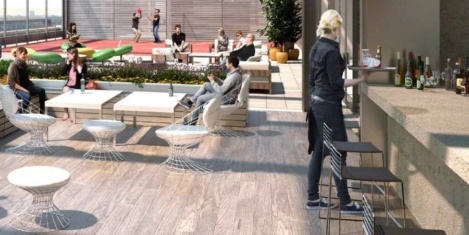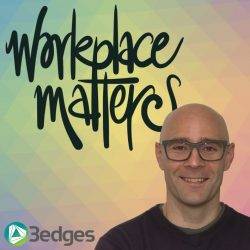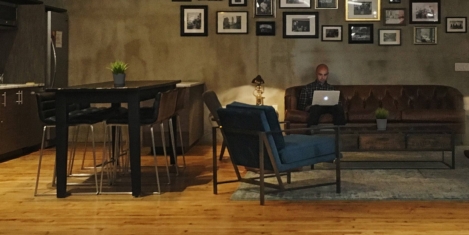June 2, 2017
Google submits revised plans for vast new campus in London 0
 Google has submitted a revised application for planning permission to Camden Council for its proposed £600 million King’s Cross Campus in London. This building will be the first, wholly owned and designed Google building outside the United States. Construction on the purpose-built 11-storey building, comprising of more than 1 million square feet, of which Google will occupy 650,000 sqft, will commence in 2018. The building, designed by Heatherwick Studio and Bjarke Ingels Group (BIG) will feature a natural theme, with all materials sourced through Google’s healthy materials programme. This new building, combined with the current building at 6 Pancras Square and an additional third building, will create a Google campus with the potential to house 7,000 Google employees. The new building is being developed from the ground up and will contribute to the Knowledge Quarter and King’s Cross’s growing knowledge-based economy. The original plans for the building from 2013 by AHMM had been put on hold, although some features such as a running track remain.
Google has submitted a revised application for planning permission to Camden Council for its proposed £600 million King’s Cross Campus in London. This building will be the first, wholly owned and designed Google building outside the United States. Construction on the purpose-built 11-storey building, comprising of more than 1 million square feet, of which Google will occupy 650,000 sqft, will commence in 2018. The building, designed by Heatherwick Studio and Bjarke Ingels Group (BIG) will feature a natural theme, with all materials sourced through Google’s healthy materials programme. This new building, combined with the current building at 6 Pancras Square and an additional third building, will create a Google campus with the potential to house 7,000 Google employees. The new building is being developed from the ground up and will contribute to the Knowledge Quarter and King’s Cross’s growing knowledge-based economy. The original plans for the building from 2013 by AHMM had been put on hold, although some features such as a running track remain.







 The British Institute of Facilities Management (BIFM) has issued updated guidance to help in-house FM teams understand what is involved in managing and changing space. The revised Space Planning and Management Good Practice Guide aims to provide practical advice on the tools and techniques that can be deployed when planning and managing space, clearly illustrating the processes involved and enabling facilities managers to set overarching space management strategies for their organisation. Key areas covered in the guide include space demands, strategy and standards, programming and managing projects and the technologies available to help with the process. The guide has been updated by its original author Joanna Eley, director of Alexi Marmot Associates.
The British Institute of Facilities Management (BIFM) has issued updated guidance to help in-house FM teams understand what is involved in managing and changing space. The revised Space Planning and Management Good Practice Guide aims to provide practical advice on the tools and techniques that can be deployed when planning and managing space, clearly illustrating the processes involved and enabling facilities managers to set overarching space management strategies for their organisation. Key areas covered in the guide include space demands, strategy and standards, programming and managing projects and the technologies available to help with the process. The guide has been updated by its original author Joanna Eley, director of Alexi Marmot Associates.




 One of the biggest concerns cited by many of those being polled on their views during the General Election campaign has been the high cost of living compared to wages. Now a new report claims that over half (55 percent) of employees are experiencing financial problems, which are affecting their behaviour, relationships and ability to perform at work. Although the nationwide study of the financial wellbeing of UK workers The DNA of Financial Wellbeing 2017 report, claims that nearly a third (32 percent) cite finance as their biggest concern; 66 percent of HR directors, think that financial worries are not of concern to their employees. The findings from Neyber, a financial wellbeing company, shows that 47 percent of workers are borrowing money to meet their basic financial needs, with 25 percent borrowing on a credit card, followed by 13 percent through a bank overdraft and 13 percent borrowing from friends and family. Meanwhile, an increase in so-called zero hour contracts means that nearly half (47 percent) of workers in the North and Midlands have an income fluctuation of more than 10 percent each month.
One of the biggest concerns cited by many of those being polled on their views during the General Election campaign has been the high cost of living compared to wages. Now a new report claims that over half (55 percent) of employees are experiencing financial problems, which are affecting their behaviour, relationships and ability to perform at work. Although the nationwide study of the financial wellbeing of UK workers The DNA of Financial Wellbeing 2017 report, claims that nearly a third (32 percent) cite finance as their biggest concern; 66 percent of HR directors, think that financial worries are not of concern to their employees. The findings from Neyber, a financial wellbeing company, shows that 47 percent of workers are borrowing money to meet their basic financial needs, with 25 percent borrowing on a credit card, followed by 13 percent through a bank overdraft and 13 percent borrowing from friends and family. Meanwhile, an increase in so-called zero hour contracts means that nearly half (47 percent) of workers in the North and Midlands have an income fluctuation of more than 10 percent each month.






 New guidance to help facilities managers manage the transition to agile working within their organisation has just been published by the British Institute of Facilities Management (BIFM). The Agile Working Change Management Guidance Note is aimed at FMs working at a senior and/or operational level and covers the benefits of agile working and how to successfully plan and implement an integrated approach to deliver sustainable change in working behaviour. Agile working describes a range of work settings that allow people and organisations to make new choices about when, where and how they work. It is underpinned by mobile technology and applies to people working both in and away from the traditional office, such as at home, on the road or remotely in other locations. BIFM’s research and information manager Peter Brogan said: “As an Institute, we recognise the importance of the workplace agenda for FMs and this newly commissioned Guidance Note aims to address the current lack of knowledge around some of the emerging workplace practices.”
New guidance to help facilities managers manage the transition to agile working within their organisation has just been published by the British Institute of Facilities Management (BIFM). The Agile Working Change Management Guidance Note is aimed at FMs working at a senior and/or operational level and covers the benefits of agile working and how to successfully plan and implement an integrated approach to deliver sustainable change in working behaviour. Agile working describes a range of work settings that allow people and organisations to make new choices about when, where and how they work. It is underpinned by mobile technology and applies to people working both in and away from the traditional office, such as at home, on the road or remotely in other locations. BIFM’s research and information manager Peter Brogan said: “As an Institute, we recognise the importance of the workplace agenda for FMs and this newly commissioned Guidance Note aims to address the current lack of knowledge around some of the emerging workplace practices.”











June 14, 2017
Workplace wellbeing is now embedded in the very bricks and mortar of the building 0
by Sion Davies • Comment, Wellbeing, Workplace design
(more…)